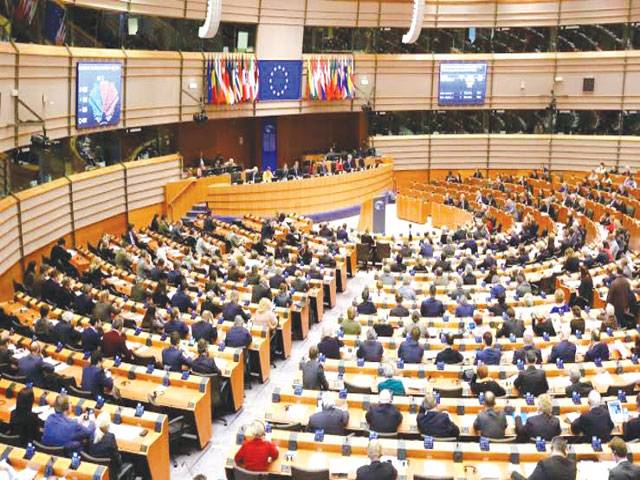LAHORE - India’s “dangerously divisive” Citizenship Amendment Act could trigger the “largest statelessness crisis in the world and cause widespread human suffering”, a powerful group of 154 European Parliament members have warned.
In a scathing denouncement of CAA, the lawmakers have drafted a formal five-page resolution to be tabled during the plenary session of the European Parliament starting in Brussels next week.
The proposed resolution not only describes the CAA as “discriminatory and dangerously divisive” but also a violation of India’s “international obligations” under the International Covenant on Civil and Political Rights (ICCPR) and other Human Rights treaties to which New Delhi is a signatory.
The 154 lawmakers belong to the ‘S&D Group’ – a progressive forum of MEPs from 26 EU countries, recognised as the second-largest political caucus in the European Parliament. They are committed to upholding social justice and democratic values such as Equality, Diversity and Fairness.
While condemning the “unilateral changes made to the status of Kashmir by India”, the draft resolution noted that India has never implemented UN “Security Council resolutions requiring a referendum allowing all Kashmiris to determine the future status of Kashmir.”
It also noted with concern the rise in tensions between Pakistan and India – “both being nuclear weapons states” – which it said were “fuelled by the controversial decisions of the Government of India on Kashmir and citizenship”.
Urging India to repeal the “discriminatory amendments” to its citizenship law, the draft resolution says the new law “violates India’s international obligations to prevent the deprivation of citizenship on the basis of race, colour, descent, or national or ethnic origin as enshrined in the ICCPR and other human rights treaties.”
The resolution, which will be put up for voting on January 30, says the CAA “sets a dangerous precedent and represents an intensification of the [Indian] Government’s Hindu nationalist agenda”, adding that “it is difficult to view the CAA in isolation, as both the amendments and the NRC could deprive minorities of their citizenship of India” while “only Muslims excluded from the NRC will have difficulty winning their cases at foreign tribunals.”
Earlier this month, several diplomats from EU countries had rejected invitation by Indian authorities for a rare visit to Occupied Kashmir, where a complete curfew and communications blockade has been imposed by authorities since Aug 5.
The diplomats said they were not interested in a “guided” tour and wanted to meet people “freely” and of their own choosing, according to reports published in Indian media.
Significantly the draft resolution also refers pointedly to the United Nations Basic Principles on the Use of Force and Firearms by Law Enforcement Officials, to which India is also bound. This is in the context of their observation that the adoption of the CAA “has sparked massive protests against its implementation, with 27 reported deaths, 175 injured and thousands arrested and reports that the Indian government has ordered internet shutdowns, imposed curfews and placed limits on public transportation to prevent peaceful protests.” Moreover, “reports have emerged of hundreds of protesters being beaten, shot, and tortured, in particular in Uttar Pradesh.” The draft resolution notes that on January 5, 2020, the campus of Jawaharlal Nehru University, where students were protesting against the CAA and the National Register of Citizens (NRC), was attacked by a masked mob that injured over 20 students and teachers from the University.
It quotes the spokesperson for the UN High Commission for Human Rights as having expressed concern that the CAA is ‘fundamentally discriminatory in nature’.
The draft resolution states that the CAA was enacted during the Government’s push for a nationwide citizenship verification process (the NRC). “The Government’s statements revealed that the aim of the NRC process was to strip Muslims of their citizenship rights while protecting those of Hindus and other non-Muslims” and “whereas Muslims who are not included in the NRC will have recourse to the Foreigners’ Tribunals that have been established to determine the right to citizenship, these tribunals have been internationally condemned for failing to protect the right to a fair trial and human rights guarantees”.
Several Indian States have already announced that they would not implement the law and the government of Kerala, in its petition to the Supreme Court, called the CAA ‘a violation of the secular nature of the Indian Constitution’ and accused the federal Indian Government of ‘dividing the nation on religious lines’.
It also calls on the Indian authorities to ensure the right to peaceful protest and to guarantee the life and physical integrity of those who choose to demonstrate and also to ensure that the security forces comply with the United Nations Basic Principles on the Use of Force and Firearms by Law Enforcement Officials.






